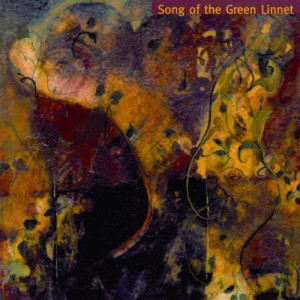 It must be something to have a catalog of musical gems at your fingertips, and the wit to pick some of the best material from the hoard, because that’s exactly what we find on this collection. The cynic probably thinks the folks at Green Linnet are trying to milk the most out of their collection, while the generous soul insists that collections like these allow people to sample from a variety of artists they might not take a chance on. Me, well, I enjoy this folk music thing, and collections such as these give me new glimpses of familiar favorites as well as introductions to groups whom I should have heard but have somehow slipped below my radar screen. So I tend towards the latter position.
It must be something to have a catalog of musical gems at your fingertips, and the wit to pick some of the best material from the hoard, because that’s exactly what we find on this collection. The cynic probably thinks the folks at Green Linnet are trying to milk the most out of their collection, while the generous soul insists that collections like these allow people to sample from a variety of artists they might not take a chance on. Me, well, I enjoy this folk music thing, and collections such as these give me new glimpses of familiar favorites as well as introductions to groups whom I should have heard but have somehow slipped below my radar screen. So I tend towards the latter position.
I’ve enjoyed most of the Green Linnet collections I’ve come across, so I was happy when this one came up for review — and I was not disappointed. It’s definitely meant for those who love the songs. There are no instrumentals to vary the pace, although a few of the songs are paired in sets with instrumentals. But there is no shortage of good playing or singing on this two disc set. The roster is impressive, including established acts, like Old Blind Dogs (“Edward”) and Altan (“Dulaman”), and good choices from newer acts, like Reeltime (“Sile”), as well. The album begins with Andy Stewart’s swashbuckling “Gallant Murray,” followed by Niamh Parsons’ sober “Bonny Woodhall” varying the pace between bright upbeat numbers and those bleak, heart-wrenching songs that tie the individual to the universal, themes that cause traditional music to endure.
Song includes traditional numbers as well as original songs written in the tradition, like Relativity’s “Gathering Place” or Wolfstone’s “Till I Sleep.” The choral styles vary as well, from simple “kitchen party” delivery of The Tannahill Weavers’ “When the Kye Come Hame” or Mick Maloney’s “Uncle Dan McGann” to the more stylized harmonies of Green Fields of America’s “Stick to the Craythur.” Síleas’s “The Silver Whistle” contains lovely harmonies, and Milladoiro’s “Moraima” is simply beautiful, while the stark, simple voices and accompaniment make other songs poignant, such as Capercaille’s “Fisherman’s Dream.”
In looking at the songs as a whole, I’m struck by both the stark deliveries and the themes of conflict. Martin Carthy’s “Willie’sLady,” relates the conflict and treachery between a queen and her daughter-in-law, while bleak loss dominates Niamh Parsons’ singing of the “Kilnamartyra Exile” and June Tabor’s incredible, soulful rendition of “The Water is Wide.” In this context the celebratory songs seem quite determined, and the devil-may-care attitude of young lovers become personal statements of their willingness to try for a chance at happiness — however brief. I have to admit that this determination and willingness to confront tragedy in song has always attracted me to this music. The bare-faced, dry-eyed apprehension of tragedy, passion, and choices is what gives this music its lasting appeal and makes the celebratory songs meaningful. For all the sad thoughtful songs on these discs, the album begins and ends with celebration: from the tribute to “Gallant Murray” to the “The Humours of the King of Ballyhooley” honoring a loved wife and a good life, with the joys of drink and the pleasures of love scattered somewhere in between.
If you like a good selection of songs, you’ll appreciate the fine sensibilities of the folks at Green Linnet, who have pulled some of the best number songs from a variety of fine traditional folk singers. https://compassrecords.com/label/green-linnet/
(Green Linnet, 2000)
